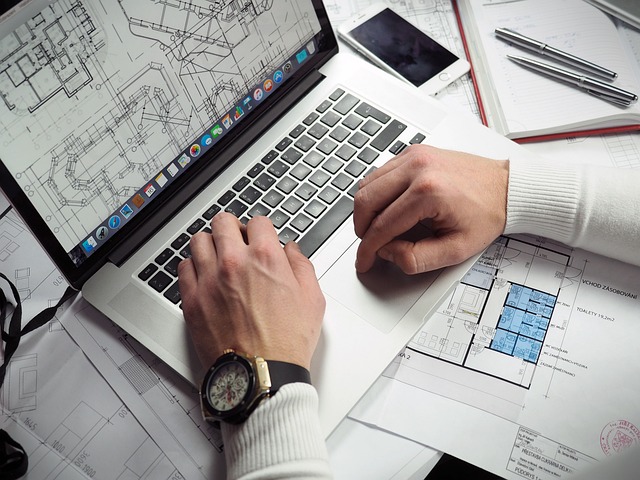The Importance of Self-Awareness in Maintaining Work-Life Balance
In today’s fast-paced world, the quest for a harmonious work-life balance is more crucial than ever. As professionals and entrepreneurs, we often find ourselves juggling multiple tasks and priorities. This is where self-awareness plays a pivotal role. Self-awareness is the conscious knowledge of one’s own character, feelings, motives, and desires. It serves as a foundation upon which individuals can build both personal and professional lives. By being self-aware, we can better understand our limits, recognize when we’re leaned too heavily into work or personal life, and learn how to adjust accordingly for optimal balance.
Self-awareness does not merely come naturally; it requires honest introspection and mindfulness. When you cultivate this quality, you start noticing patterns in your behavior and how they influence your work-life balance. For instance, if you consistently prioritize work over personal time, acknowledging this tendency is the first step. Self-aware individuals ask themselves critical questions. They reflect on whether their work habits are sustainable and how these habits affect their relationships. This practice often leads to significant improvements in managing workloads effectively while also nurturing personal connections. In essence, self-awareness allows us to identify when we are overwhelmed and to make proactive changes rather than ending up in a reactive cycle of burnout and dissatisfaction.
Moreover, self-awareness can enhance emotional regulation, a skill that is paramount in maintaining a healthy work-life balance. Emotional regulation helps us to respond to challenges constructively. For example, when faced with a stressful deadline, self-aware individuals recognize their emotions—be it anxiety, frustration, or excitement. Instead of allowing these emotions to drive them into a frenzy of work or retreat into procrastination, they can employ techniques like mindfulness or simple breathing exercises to regain their composure. Such strategies help keep stress at bay and promote a clearer thinking process. Thus, emotional regulation acts as a buffer, maintaining the stability needed for sustainable work practices, all while ensuring that personal life does not suffer because of professional pressures.
Building Self-Awareness through Reflection
One effective method to enhance self-awareness is through reflection. Taking time to ponder your daily routines can reveal a lot about how you allocate time between work and personal life. You might find it beneficial to keep a journal where you document your feelings and experiences. Writing down your thoughts allows for a deeper understanding of your struggles and achievements. As an entrepreneur, you might want to assess whether your current work habits align with your long-term goals or if they merely keep you perpetually busy without yielding substantial results. After reflecting on your day, consider what tasks brought you joy versus those that drained you. This contrast is essential; it helps you clarify areas that may need adjusting, leading you to a more balanced life.
Encouraging regular feedback from trusted colleagues, friends, or family members can also enhance your self-awareness. Others often notice behaviors that you may not be aware of, and their outside perspectives can help you recalibrate. For instance, family members might express concern about the time you dedicate to working late nights. Recognizing this can prompt you to prioritize scheduled family time or reduce after-hours work commitments. Alternatively, if colleagues notice you thriving while taking breaks, it may reinforce the value of downtime. Seeking feedback illuminates your patterns and behaviors, making it easier to embrace change, which is crucial for achieving a sustainable work-life balance.
The Role of Mindfulness in Self-Awareness
Mindfulness practices also significantly contribute to enhancing self-awareness. Taking even a short amount of time each day to practice mindfulness—be it through meditation, yoga, or simple breathing exercises—can help ground your thoughts and feelings. This practice enhances your ability to focus on the present, decreasing distractions that often blur the lines between our work and personal lives. When we practice mindfulness, we tune into our bodies and emotions, allowing us to identify when we feel out of balance. We become more attuned to our needs. If we start feeling stress creeping in, mindfulness equips us with the tools to take action—whether that’s stepping away from a project or simply allowing ourselves a moment of self-compassion.
Moreover, mindfulness encourages an acknowledgment of our limitations, which is critical for self-care. Recognizing that we cannot do it all allows us to prioritize tasks effectively. Entrepreneurs often struggle with the pressure to achieve continuous growth and success. However, through mindfulness, we learn that taking breaks and allowing ourselves to recharge is just as important. For instance, when you take a mindful approach, you might see better outcomes from your work. You learn that a 10-minute break to stretch or meditate can clear your mind and improve creativity, leading to more productive hours. This strategy not only fosters a venue for personal well-being but also enhances work output. In other words, mindfulness serves as a bridge connecting self-awareness to work-life balance.
Setting Boundaries: The Self-Awareness Connection
One of the significant benefits of developing self-awareness is the clarity it brings in setting boundaries. Boundaries are essential for maintaining a healthy work-life balance. When you become more aware of your needs, you can begin to delineate what is acceptable versus what is overwhelming. For example, if you recognize that late-night emails impede your family time, establishing a no-work policy after a certain hour becomes easier. Employees and entrepreneurs alike often struggle to set boundaries, fearing they might miss out on opportunities or let others down. However, self-awareness allows you to see that it’s a matter of long-term success versus short-term gains. By prioritizing your psychological and emotional needs, you foster deeper connections with others, leading to healthier relationships and ultimately greater satisfaction in both work and personal life.
Additionally, effective communication becomes much more apparent when self-aware. When you can express your needs and limits clearly, coworkers, partners, and friends can better respect those boundaries. For instance, if you feel overwhelmed with your workload, sharing this reality with your team can foster collaboration, allowing them to support or reassign tasks as needed. This open communication nurtures a culture where everyone can thrive rather than compete unnecessarily, leading to collective work-life balance. As such, setting boundaries rooted in self-awareness not only safeguards your well-being but also enhances team dynamics, creating a healthier work environment.
Self-Awareness and Entrepreneurial Growth
Entrepreneurs uniquely benefit from self-awareness in relation to their growth opportunities. Most entrepreneurs wear multiple hats, from being visionaries to handling administrative tasks. In such an environment, self-awareness acts as a compass, guiding them towards entrepreneurial growth while ensuring that work-life balance remains intact. Entrepreneurs often face intense pressure to innovate and perform. This drive can sometimes blur personal priorities. However, those who practice self-awareness regularly can step back and evaluate whether they’re moving in a direction aligned with their values and goals. Are they working on projects that fulfill them, or are they simply trying to keep pace with industry trends?
Furthermore, acknowledging one’s strengths and weaknesses is imperative in achieving success as an entrepreneur. Self-aware business owners can delegate tasks effectively. They focus on their core competencies instead of trying to do everything themselves, which often leads to burnout. If you find that numbers aren’t your forte, hiring or partnering with someone who excels in that area becomes an easy choice when you’re self-aware. This collaborative approach not only lightens your workload but also enhances productivity and business growth. So, instead of operating from a place of fear or scarcity, self-aware entrepreneurs embrace community, collaboration, and shared success. Consequently, this leads to more sustainable business practices, positively reinforcing their work-life balance.
FAQs about Self-Awareness and Work-Life Balance
1. What is self-awareness?
Self-awareness is the conscious knowledge of one’s own character, emotions, motives, and desires. It helps individuals recognize their patterns in behavior and the impact they have on their personal and work lives.
2. Why is self-awareness important for entrepreneurs?
Self-awareness is vital for entrepreneurs as it allows them to understand their strengths and weaknesses, set effective boundaries, and establish clarity in decision-making. This leads to more sustainable work habits and personal fulfillment.
3. How does mindfulness enhance self-awareness?
Mindfulness practices help individuals focus on the present moment, enabling them to tune into their feelings and needs. This awareness promotes emotional regulation and helps maintain a healthy work-life balance through effective stress management.
4. What can I do to develop my self-awareness?
To enhance your self-awareness, consider engaging in reflective journaling, seeking feedback from others, practicing mindfulness techniques, and taking time to evaluate your daily routines and feelings regarding work and personal life.
5. How can I effectively set boundaries using self-awareness?
Self-awareness helps you recognize when work-life boundaries are being strained. With this clarity, you can establish limits regarding work hours and communicate clearly with colleagues and family, encouraging a culture of respect for your personal time.



